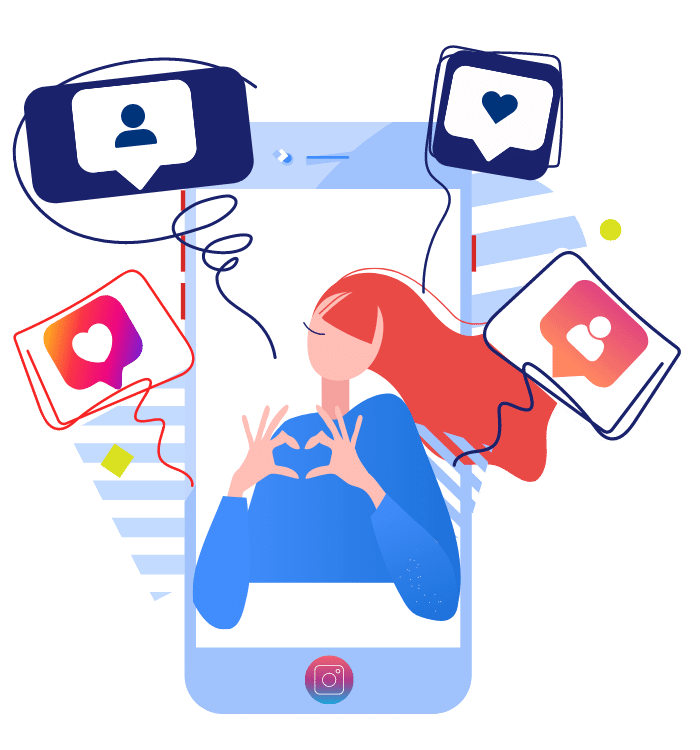
In the digital age, social media metrics like buying Instagram followers at iDigic have become the modern equivalent of high school popularity. We no longer chase the elusive votes for homecoming court, but instead, we yearn for those little heart-shaped affirmations that we matter, that our content resonates.
The Psychology of Likes
The act of liking something on social media taps into our basic human need for approval. It’s instant validation in the simplest form, akin to nodding approval in a group conversation. Research has found that receiving likes on social media can trigger the release of dopamine — a neurotransmitter associated with the brain’s reward and pleasure centers.
It’s not purely vanity that drives us to seek likes; in part, it’s a search for social acceptance. Just as a well-placed joke at a party can elevate our status, a well-liked post on Instagram can do the same. We are biologically wired to seek social connections and to be part of a community. Likes, in this context, become a currency of social capital — the more you have, the more you belong.
But with the rise of influencer culture, the relationship between likes and social standing has become more complex. For influencers, likes aren’t just about approval; they’re a key metric of success, directly correlated to sponsorships and income. This professionalization of popularity has shifted the focus from mere reception to a pursuit to share content that garners the highest like count.
The Dark Side of Likes
For many, the pursuit of likes has morphed from a desire for connection into a compulsive addiction that breeds anxiety and self-doubt. The pressure to curate a perfect life online can lead to feelings of inadequacy, especially when faced with others’ seemingly flawless feeds.
Instagram’s decision to hide likes in some regions has sparked conversations about the platform’s mental health impacts. When likes are no longer public, the dopamine hit from those virtual pats on the back becomes less immediate, and the pressure to perform eases. This move has been lauded as a step toward a healthier relationship with the platform, but it’s a double-edged sword for influencers who now have to work harder to prove their engagement.
Furthermore, the race for likes has given birth to fake engagement in the form of bots and paid services. These tactics might temporarily boost the numbers, but they erode genuine connections and carry significant risks, including account suspension. In extreme cases, the obsession with likes can lead to “like fraud” — purchasing likes or engagement to manipulate the algorithm, a practice that undermines the integrity of social media metrics.
Navigating the Like Landscape
In a world where likes can both build and destroy reputations, it’s essential to approach social media with a clear understanding of its role in our lives. Instagram likes can be a tool for connection and validation, but they should never be the sole measure of our worth.
For content creators and businesses, likes remain valuable as a window into audience preferences and a metric of success. However, fostering a community that engages with your content because it genuinely resonates is ultimately more sustainable than a number that can fluctuate with an algorithm update.
At its core, the power of Instagram likes is social proof. They signify to others that your content is worth their time, and in this sense, likes do affect your social standing. However, the true measure of online popularity lies in the ability to cultivate an engaged audience and to create meaningful connections through the screen. It’s not just about the quantity of likes, but the quality of the relationships they represent.
For users, it’s important to remember that what we see on social media is often a highlight reel, not the full picture. The number of likes a post receives doesn’t necessarily reflect the poster’s happiness, success, or worth. Social media should enhance our lives, not become a source of stress or anxiety.
Ultimately, the dichotomy of likes’ power — to uplift and to burden — is a reflection of the complex role social media plays in our lives. Whether they truly boost our social standing hinges on our ability to harness their power without being consumed by it. In the end, it’s the strength of our character, the quality of our relationships, and the authenticity of our interactions that defines us, not the number of likes on our posts.